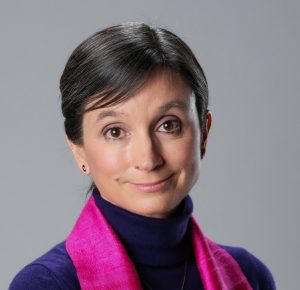April 20th, 2021
 Over the past decade, and particularly over the past five years, research at the interface of topology and neuroscience has grown remarkably fast. Topology has, for example, been successfully applied to objective classification of neuron morphologies and to automatic detection of network dynamics. In this talk I will focus on the algebraic topology of brain structure and function, describing results obtained by members of my lab in collaboration with the Blue Brain Project on digitally reconstructed microcircuits of neurons in the rat cortex. I will also describe our on-going work on the topology of synaptic plasticity. The talk will include an overview of the Blue Brain Project and a brief introduction to the topological tools that we use.
Over the past decade, and particularly over the past five years, research at the interface of topology and neuroscience has grown remarkably fast. Topology has, for example, been successfully applied to objective classification of neuron morphologies and to automatic detection of network dynamics. In this talk I will focus on the algebraic topology of brain structure and function, describing results obtained by members of my lab in collaboration with the Blue Brain Project on digitally reconstructed microcircuits of neurons in the rat cortex. I will also describe our on-going work on the topology of synaptic plasticity. The talk will include an overview of the Blue Brain Project and a brief introduction to the topological tools that we use.
Bio:
Kathryn Hess is an American-born mathematician, who is a professor of mathematics and life sciences at the Ecole Polytechnique Fédérale de Lausanne (EPFL). She received her PhD from MIT and held positions at the universities of Stockholm, Nice, and Toronto before moving to the EPFL.
Her research focuses on algebraic topology and its applications, primarily in the life sciences, but also in materials science. She has published extensively on topics in pure algebraic topology including homotopy theory, operad theory, and algebraic K-theory. On the applied side, she has elaborated methods based on topological data analysis for high-throughput screening of nanoporous crystalline materials, classification and synthesis of neuron morphologies, and classification of neuronal network dynamics. She has also developed and applied innovative topological approaches to network theory, leading to a powerful, parameter-free mathematical framework relating the activity of a neural network to its underlying structure, both locally and globally.
In 2016 she was elected to Swiss Academy of Engineering Sciences and was named a fellow of the American Mathematical Society and a distinguished speaker of the European Mathematical Society in 2017. She has won several prizes for her teaching, including the top EPFL teaching award.
She has contributed actively to the scientific life of the mathematical community, in particular by cofounding the network “Women in Topology” in 2011 and coorganizing its first activities. She has also deeply been involved in outreach, such as the creation in 2008 of the Euler Course, a six-year, fast-paced math program for children with exceptional mathematical potential, based at EPFL.


